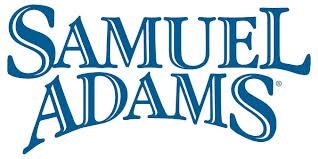It might not be a big market at the moment, but the analysts at Rabobank see hard cider sales growing, and like vodka and other distilled spirits before, the real opportunity will be at opposite ends of the spectrum, both in the super-premium market and at the value end.

What brewers like is that cider is not a replacement for beer but a supplement to it, perhaps because women are the biggest consumers of it. Rabobank says 55% of consumers are women under 30, making them a particularly attractive target. And when it comes to ordering drinks, their demographic is more likely to eschew the middle market, which is why the extreme ends need to be tapped.
Recently, Anheuser-Busch InBev NV (ADR) (NYSE:BUD) introduced in the U.S. its Stella Artois Cidre brand of cider as a means of siphoning off wine drinkers but also trying to steal some of Boston Beer Co Inc (NYSE:SAM)’s thunder. According to GuestMetrics, hard cider sales soared 70% in the first quarter, and it was largely on the back of Angry Orchard. Notably, MillerCoors, the joint venture between SABMiller and Molson Coors Brewing Company (NYSE:TAP), also acquired cider maker Crispin last year.
The growth in 2012 follows the success of hard cider sales the year before, which saw a 40% increase. Yet the industry leader remains C&C Group‘s Vermont Hard Cider, whose Woodchuck Hard Cider has a 41% share of the market, though analysts say Angry Orchard owns nearly half of the on-premises market at the end of the first quarter.
Although vintners seemingly have more to worry about as cider sips away at wine’s share, that old Chinese proverb about crisis and opportunity would seem to apply here.
Those Rabobank analysts say wineries are already appropriately positioned to capitalize on the fermented beverage’s growing popularity, and we’re likely to see them move into the super-premium category. That bodes well for Constellation Brands, Inc. (NYSE:STZ), which is the largest wine producer in the world and the biggest premium wine producer in the U.S., with more than $1.7 billion in annual sales.
Euromonitor sees domestic cider sales growing 65% from 2011 to 2016, or 10.6% annually, compared with a 1% decline in beer sales. That already seems to be the pattern we’re seeing with brewers such as Boston Beer Co Inc (NYSE:SAM), and it remains the one to beat here. But with shares hitting new highs daily and trading at more than 30 times estimated earnings and almost four times sales, it seems investors have already decided that waiting for a better buy-in price seems prudent, though an argument for sipping smaller tranches can be made, too.
Cider probably won’t ever replace beer or wine, but it is well on its way to becoming a very valuable niche for brewers, and perhaps soon vintners, too.
The article It’s Not Hard to Swallow Cider’s Potential originally appeared on Fool.com and is written by Rich Duprey.
Fool contributor Rich Duprey has no position in any stocks mentioned. The Motley Fool recommends Boston Beer and Molson Coors Brewing (NYSE:TAP) and owns shares of Boston Beer.
Copyright © 1995 – 2013 The Motley Fool, LLC. All rights reserved. The Motley Fool has a disclosure policy.



